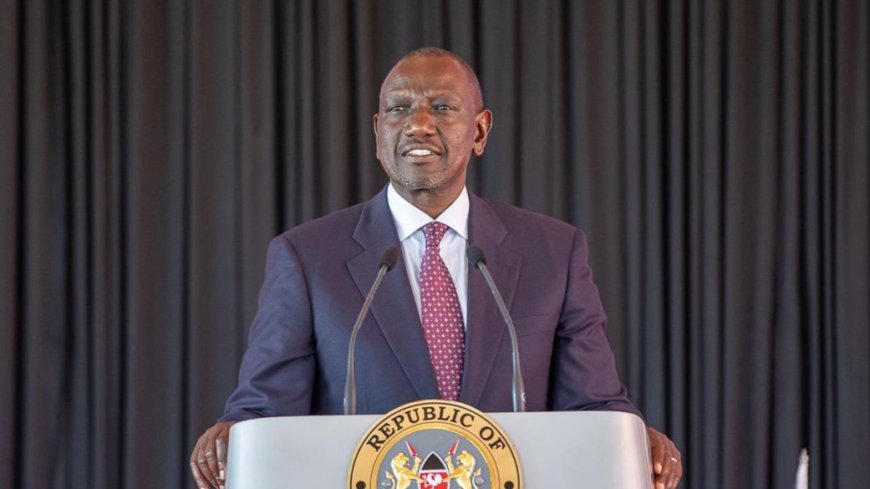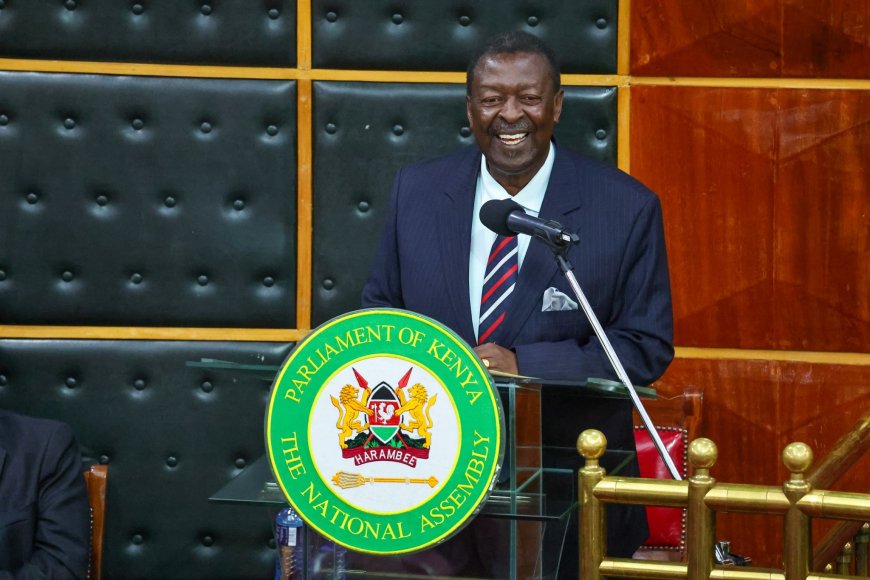Kenya Calls New York Times Exposé Dragging Ruto 'Sensational'
This follows a New York Times exposé that linked several state officials — including some members of President William Ruto’s family — to recruitment agencies accused of sending Kenyans to Saudi Arabia without adequate preparation or protection.

Prime Cabinet Secretary and Foreign Affairs CS Musalia Mudavadi has pushed back against media claims suggesting that President William Ruto's government is engaged in a so-called 'slave trade'.
Speaking after his appearance before the National Assembly on Wednesday, November 19, Mudavadi insisted the state has put safeguards in place to protect Kenyans working overseas. He maintained that any suggestion otherwise is inaccurate.
This follows a New York Times exposé that linked several state officials — including some members of President William Ruto’s family — to recruitment agencies accused of sending Kenyans to Saudi Arabia without adequate preparation or protection.

Prime CS Musalia Mudavadi speaking while appearing in Parliament on November 19, 2025. /MUSALIA MUDAVADI
“It is therefore misleading, careless, and sensational for any media outlet to insinuate that the Government has, at any point, participated in or tolerated slavery or the exploitation of Kenyans pursuing opportunities abroad,” Mudavadi said.
“Our commitment remains unwavering to shield our citizens, expand their opportunities, and elevate Kenya’s global footprint with dignity and resolve.”
Responding to MPs, Mudavadi noted that the government had taken “bold, deliberate, and forward-looking steps” to secure the welfare of Kenyans working abroad.
He cited the deregistration of more than 600 non-compliant recruitment agencies, adding that no agency is cleared without offering insurance to Kenyan workers at zero cost.
Mudavadi also pointed to the creation of the State Department for Diaspora Affairs — a first in Kenya — to champion the rights and welfare of Kenyans abroad.
According to him, this has contributed to the rise in diaspora remittances from Ksh490 billion in 2022 to Ksh650 billion in 2024, with the country targeting Ksh1 trillion by 2027.
This comes even as Kenya faces criticism for relying heavily on labour exports, with four million Kenyans abroad sending home nearly Ksh1 trillion, surpassing earnings from tea and coffee.
The New York Times highlighted the struggles of abandoned Kenyan single mothers in Saudi Arabia, many of whom are stranded in Riyadh due to slow bureaucratic processes at the Kenyan Embassy.
The report further claimed that the labour export system enriches agency owners, alleging that the President’s wife and daughter hold significant shares in one of the recruitment firms.
It also noted that when Kenyan workers face problems, they often receive minimal assistance despite earning among the lowest wages paid to domestic workers globally.
The monthly minimum for Kenyan domestic workers was recently raised from about Ksh31,000 to Ksh34,000.
Kenyan officials have warned that pushing for higher pay could cost workers their jobs, as employers may opt for cheaper labour from countries like Burundi and Ethiopia.







